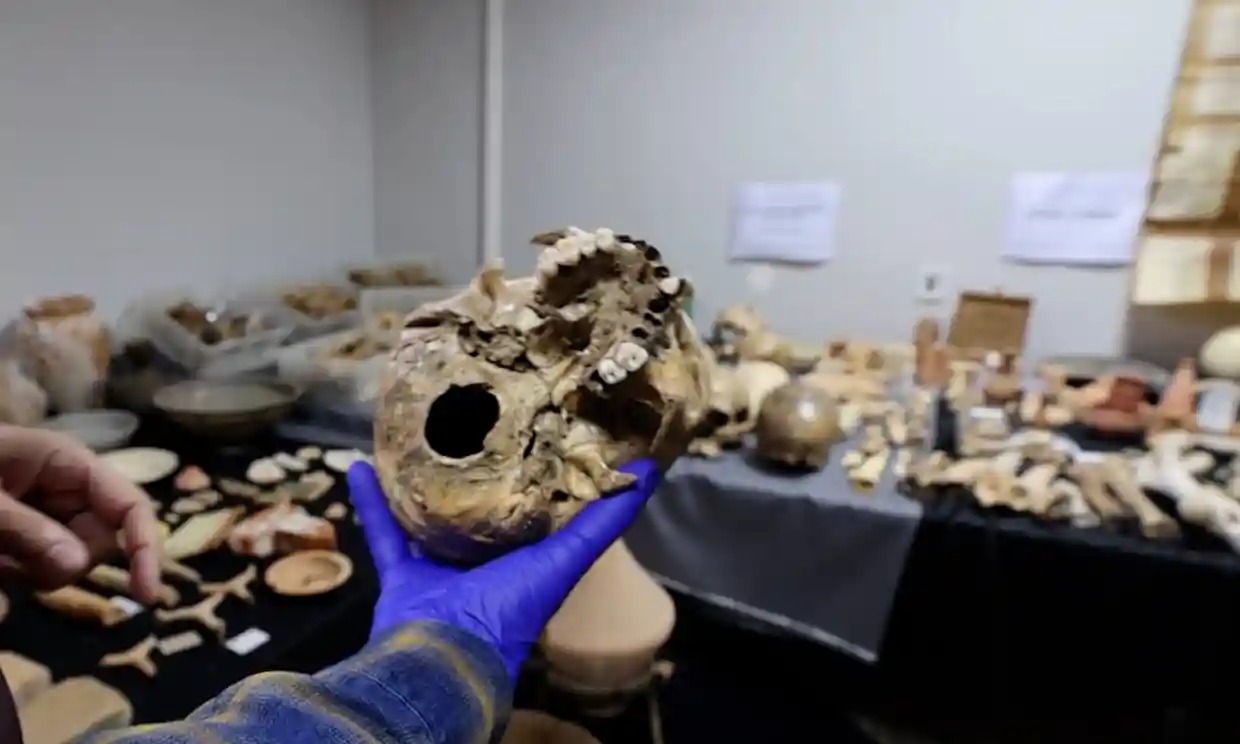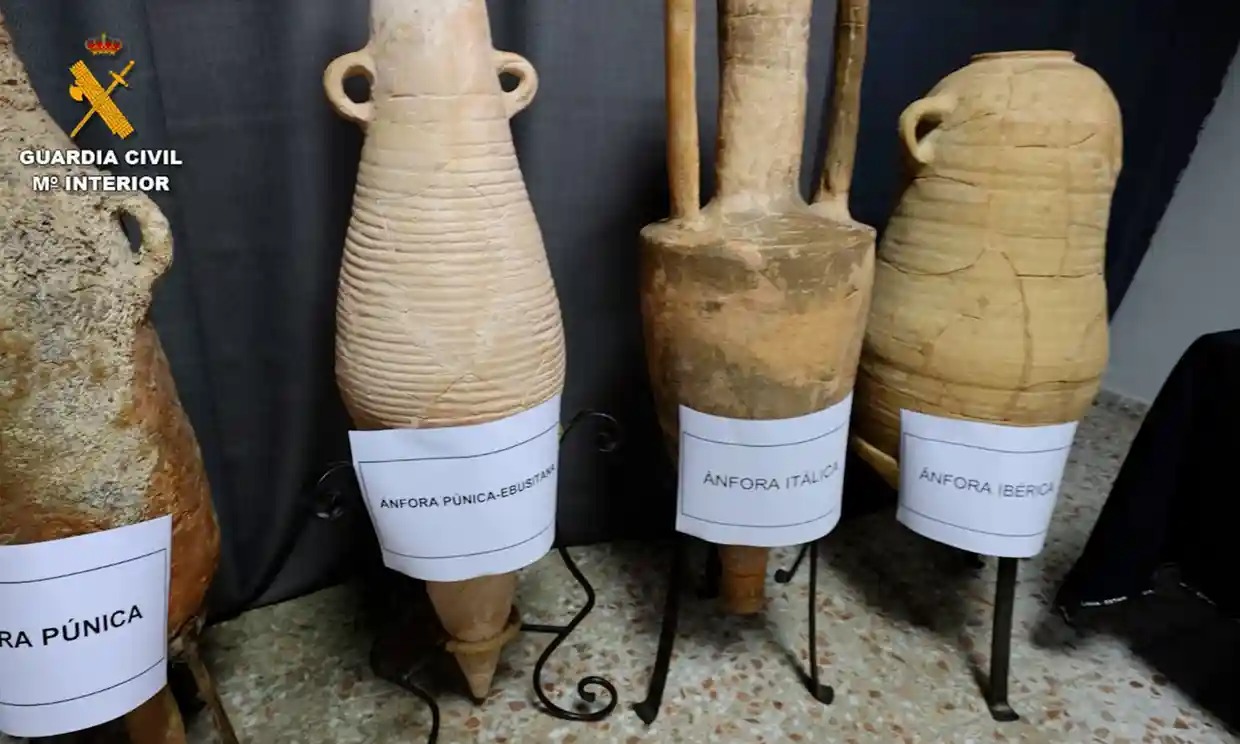Two men under investigation after tipoff about collection that also contained bone fragments believed to be up to 5,000 years old
Two men are under investigation after Spanish police discovered hundreds of archaeological artefacts as well as bone fragments believed to be up to 5,000 years old in two residential homes in the province of Alicante.
The investigation began in November after police were tipped off about a home in the small village of Gata de Gorgos that allegedly contained ancient skeletal remains.

A raid confirmed the tip, turning up bone fragments that a local archaeologist determined to be between 4,000 and 5,000 years old. In the absence of any kind of documentation to explain the collection, local officials deemed it illegal.
The suspect began collaborating with police, pointing them in the direction of another home in the nearby city of Dénia. Inside police found 350 archaeological artefacts – from bronze age mills to parts of a Roman loom and Phoenician amphorae – as well as nearly 200 bone fragments.
The find was “one of the largest illegal private collections in the province of Alicante”, police said on Friday. Photos taken during the raid showed tables cluttered with bone fragments, a skull perched on top of a row of notebooks as well as a terrace floor littered with delicately painted artefacts.
Phoenician amphorae were among the 350 archaeological artefacts. Photograph: Guardia Civil Mo. Interior
The inhabitant of the home told police he had inherited the objects after the death of a relative. “However, he did not have any type of documentation to justify the possession of the pieces nor had he done anything to regularise them,” police noted.

The seized objects included more than 1,000 small tiles believed to belong to ancient Roman mosaics, several Roman ointments as well as an 18th-century iron grenade and cannonballs.
Police also found several notebooks containing handwritten notes, believed to have been penned by the deceased relative, documenting the exact location where the items had been found. The information could help specialists in dating and assigning value to the objects as well as shed light on previously unknown archaeological sites, police noted.
The two men connected to the collections are under investigation and could face charges stemming from the misappropriation of goods of artistic, historical, cultural or scientific value, according to police. As their investigation gets under way, the objects are being stored at the Archaeological Museum of Dénia.
… as 2023 begins, and you’re joining us from Vietnam, we have a small favour to ask. A new year means new opportunities, and we’re hoping this year gives rise to some much-needed stability and progress. Whatever happens, the Guardian will be there, providing clarity and fearless, independent reporting from around the world, 24/7.
Times are tough, and we know not everyone is in a position to pay for news. But as we’re reader-funded, we rely on the ongoing generosity of those who can afford it. This vital support means millions can continue to read reliable reporting on the events shaping our world. Will you invest in the Guardian this year?
Unlike many others, we have no billionaire owner, meaning we can fearlessly chase the truth and report it with integrity. 2023 will be no different; we will work with trademark determination and passion to bring you journalism that’s always free from commercial or political interference. No one edits our editor or diverts our attention from what’s most important.
With your support, we’ll continue to keep Guardian journalism open and free for everyone to read. When access to information is made equal, greater numbers of people can understand global events and their impact on people and communities. Together, we can demand better from the powerful and fight for democracy.

Leave a Reply